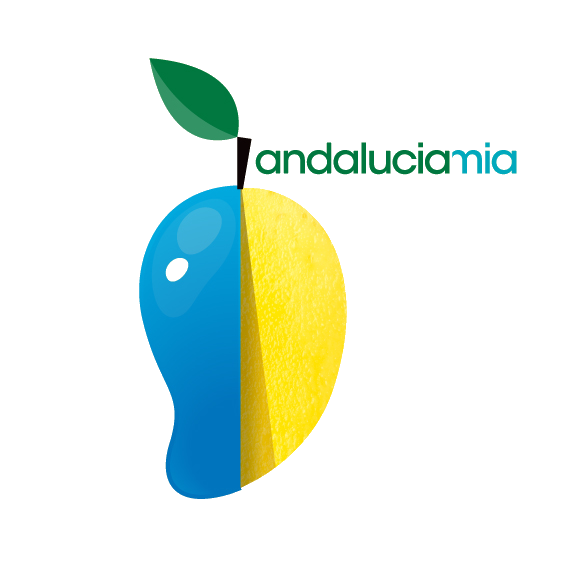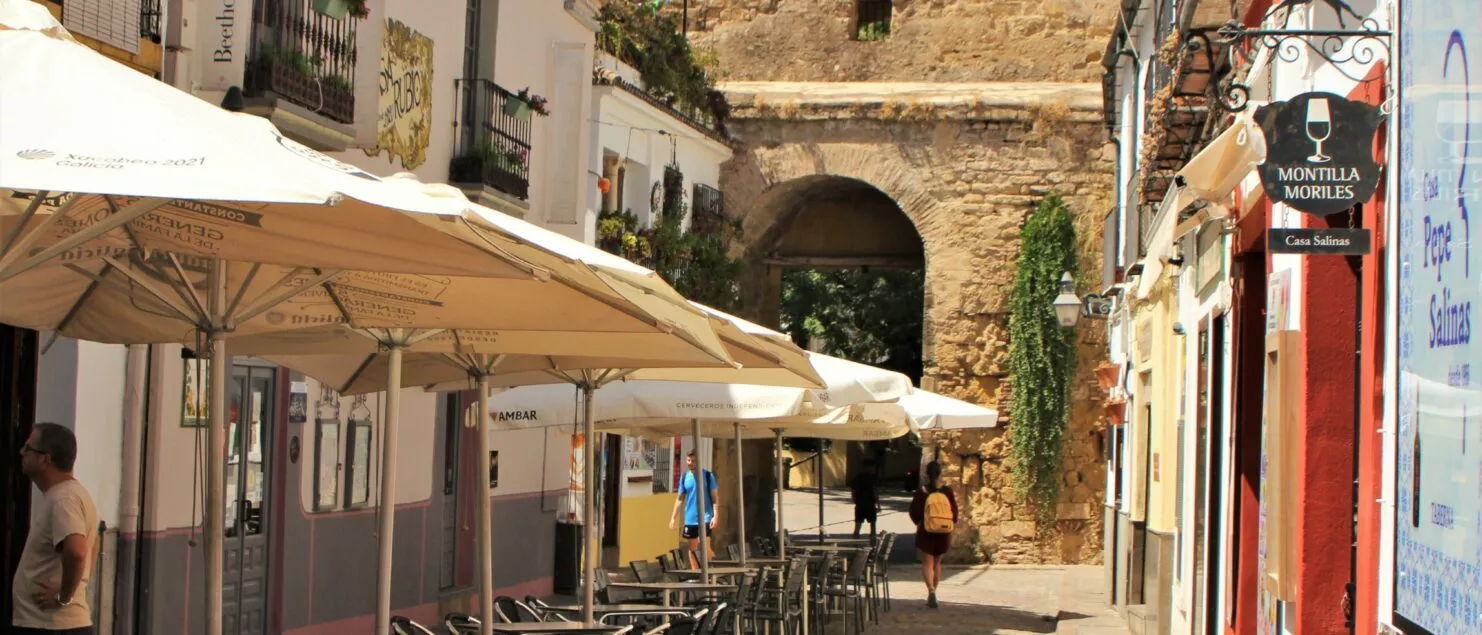Jewish quarter of Cordoba, what to see in the Juderia
Visit the Juderia, Cordoba’s Jewish quarter
This article on Cordoba’s Juderia presents the best things to see and do in the Jewish quarter of Cordoba:
- The origins of the Juderia
- Where is Cordoba’s Jewish quarter?
- The juderia, a Unesco World Heritage site
- What to see in the Jewish Quarter in Cordoba ?
- What to do in Cordoba ?
- Find accommodation in Cordoba
- Some useful links
The origins of the Juderia
As in other Spanish cities, the Jewish quarter of Cordoba is called Juderia. This quarter has existed for about 1000 years. It originated during the period of Al-Andalus, when Cordoba was called Qurtuba.
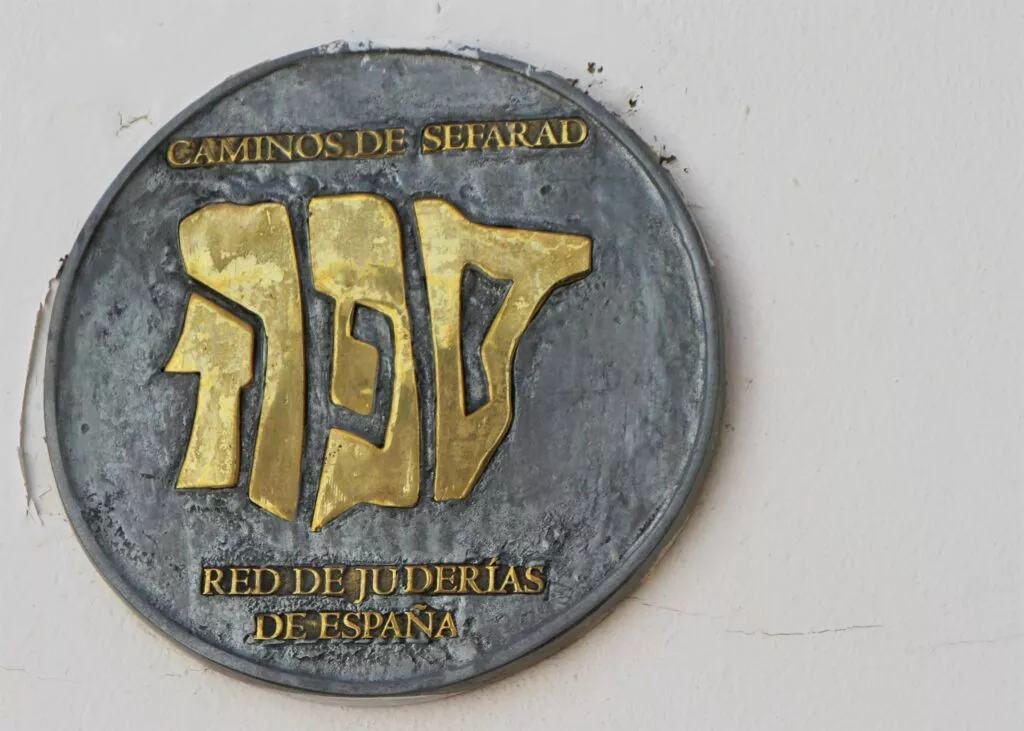
The name of the city was later Spanishised after the city was taken over by the Catholic kings in 1236.
This district extends inside the city walls, from La Puerta de Almodovar to the Mezquita, and south to the Alcazar of the Catholic Kings. It is made up of a multitude of alleys.
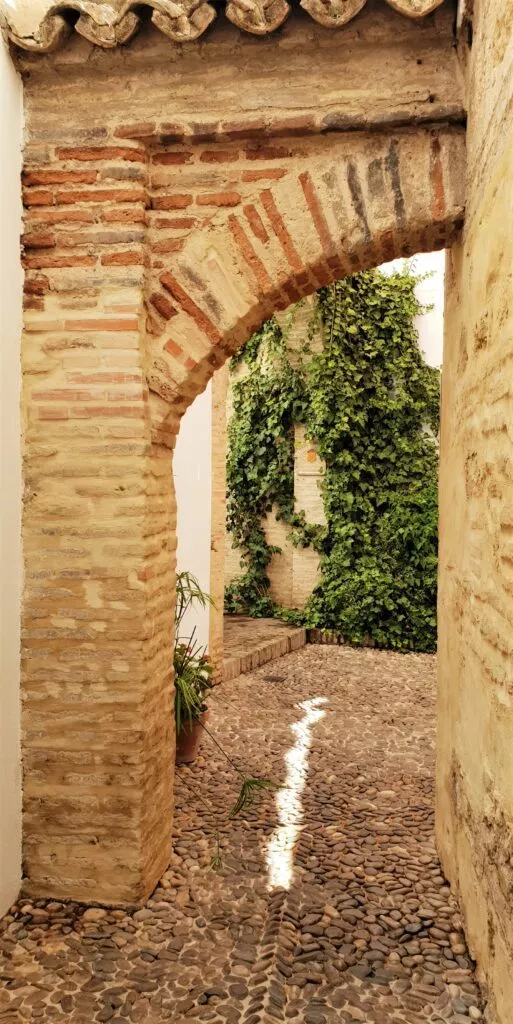
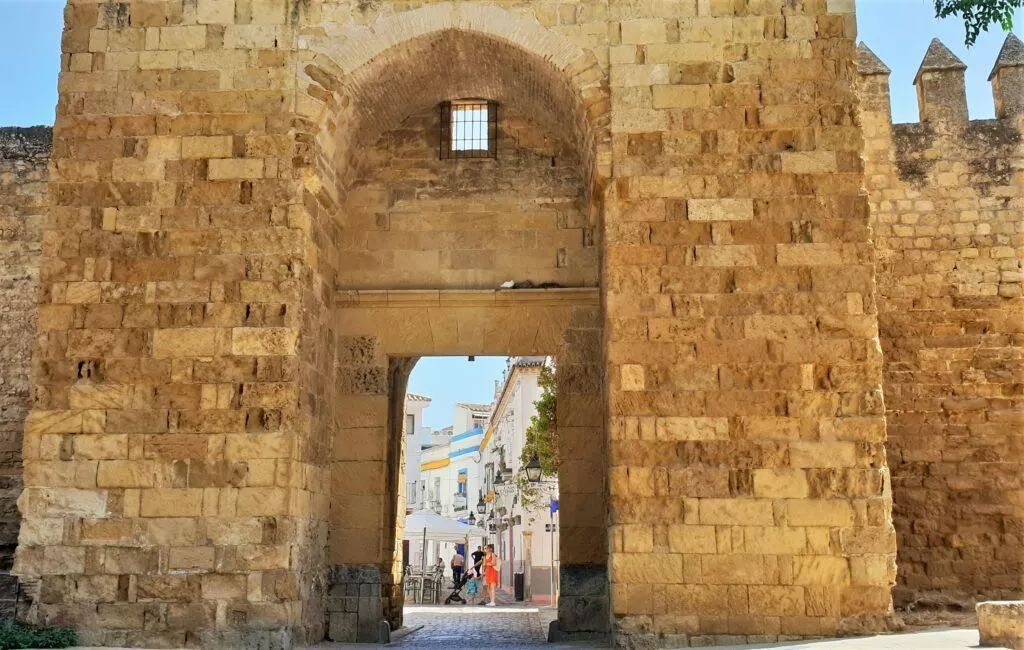
Where is the Jewish quarter of Cordoba?
Here is the centre of the quarter, the red dot, you can zoom in on the map:
The Juderia on the Unesco World Heritage List
The Jewish quarter of Cordoba has been a Unesco World Heritage Site since 1994.
Cordoba is the Spanish city with the highest number of World Heritage sites.
In fact, 4 sites are listed by UNESCO
- The Jewish quarter
- Mosque-Cathedral, the Mezquita
- Medina-Azahara site, 8km from the city centre
- The Patio Festival of Cordoba (intangible heritage of humanity)
What to see in the Jewish quarter of Cordoba, the juderia?
- The Cordoba synagogue
- Calle de los Judios
- Calleja de las Flores
- Casa de Sefarad
- The bullfighting museum
- Maimonides Square
- Rafael Boti Foundation
- Museum of Alchemy
- Chapel of San Bartolomé
- Plaza de Tiberíades
- Statue of Maimonides
- A typical Sephardic restaurant
Note: at the following link you can book several guided tours of Cordoba in English.
The synagogue of Cordoba a must see in the Jewish quarter of Cordoba
This synagogue is of particular importance as it is the only one dating from medieval times that still exists today in Andalucia.
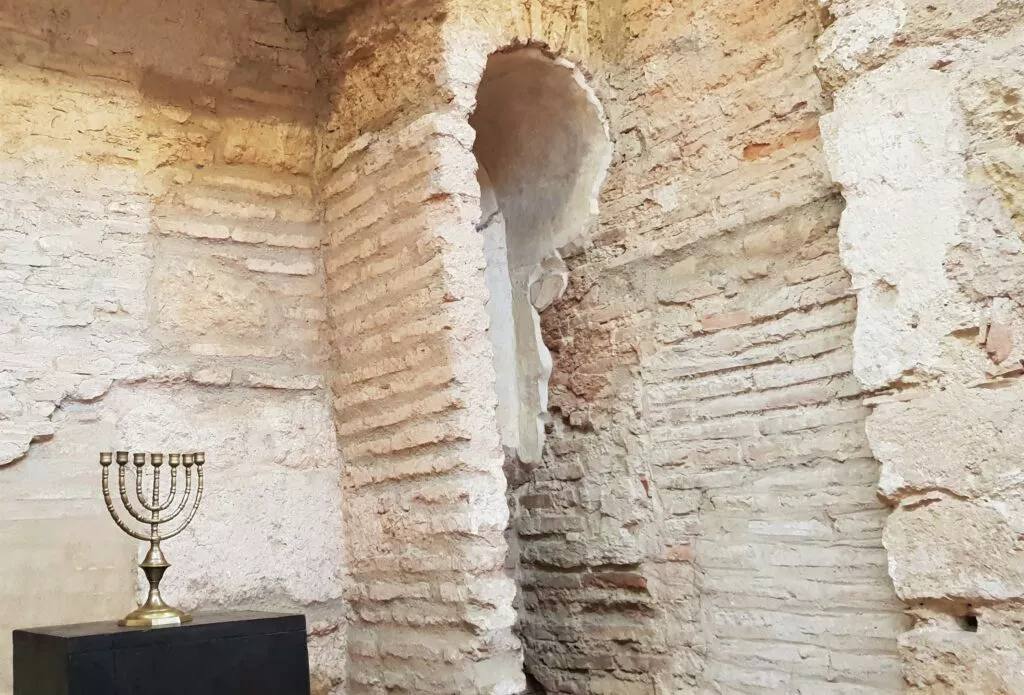
Very few synagogues remain from this period. There are only two others in Spain, in Toledo.
It was built in the 14th century, in 1315 (5075 in the Jewish calendar). It is in Mudejar style. The women’s room is on the first floor, above the entrance patio. This synagogue, located in Calle de los Judios, has many stucco decorations.
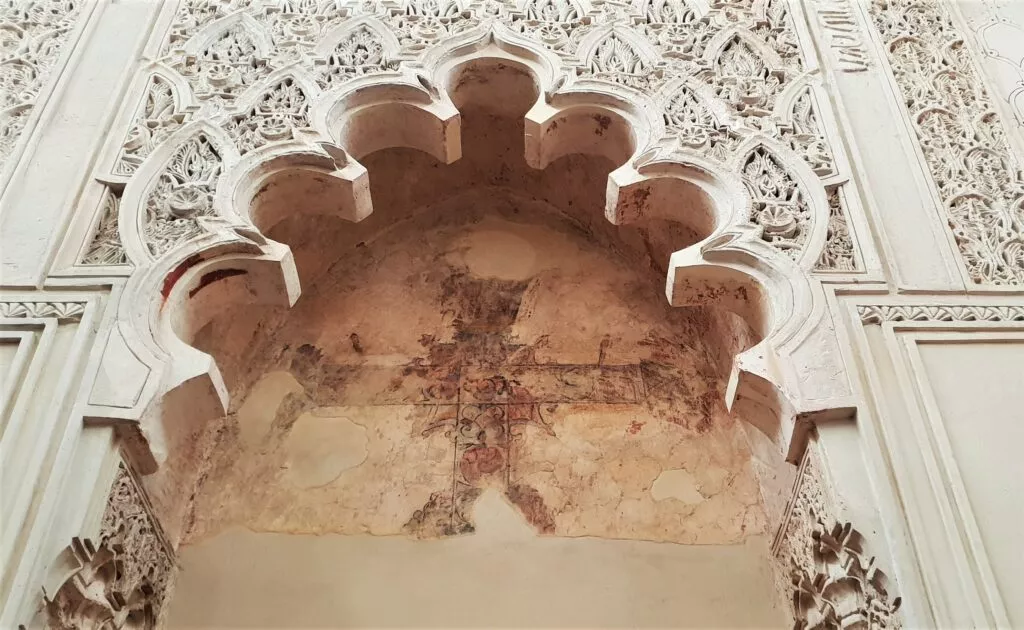
The synagogue of Córdoba has another peculiarity, it has had many uses:
It was a temple for the Jews until 1492, when the Jews who refused to convert were forced to leave.
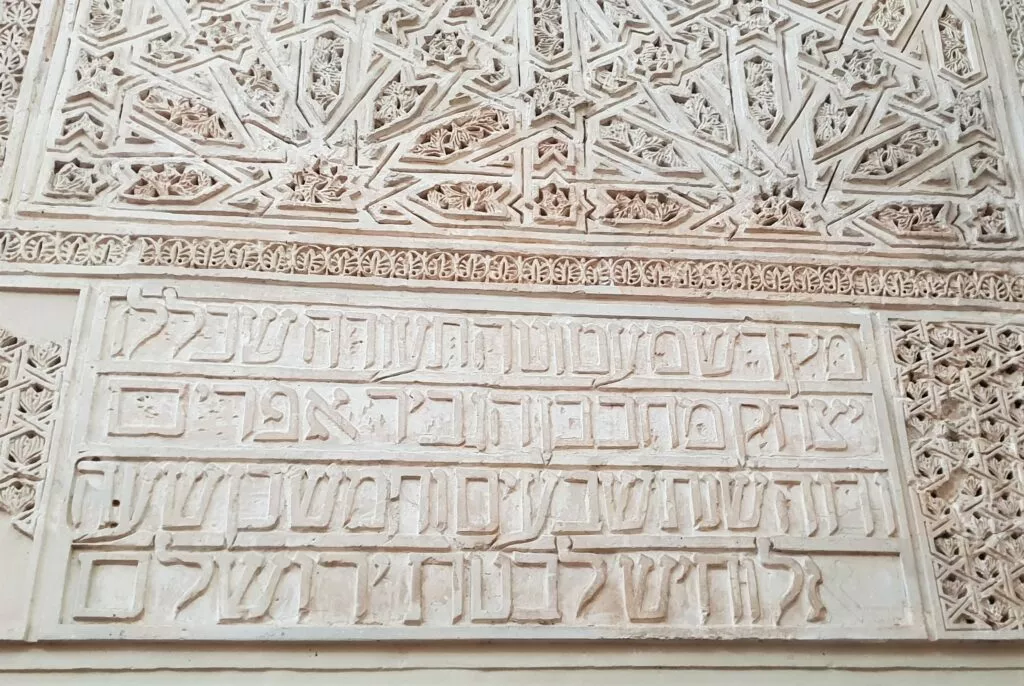
In 1492, this place became the hermitage of Santa Quiteria, then it was used as a hospital to treat hydrophobic people!
In 1588, it became the headquarters of the Brotherhood of Shoemakers, and was finally used as a school. The ruined temple was then abandoned until it was declared a national monument in 1885.
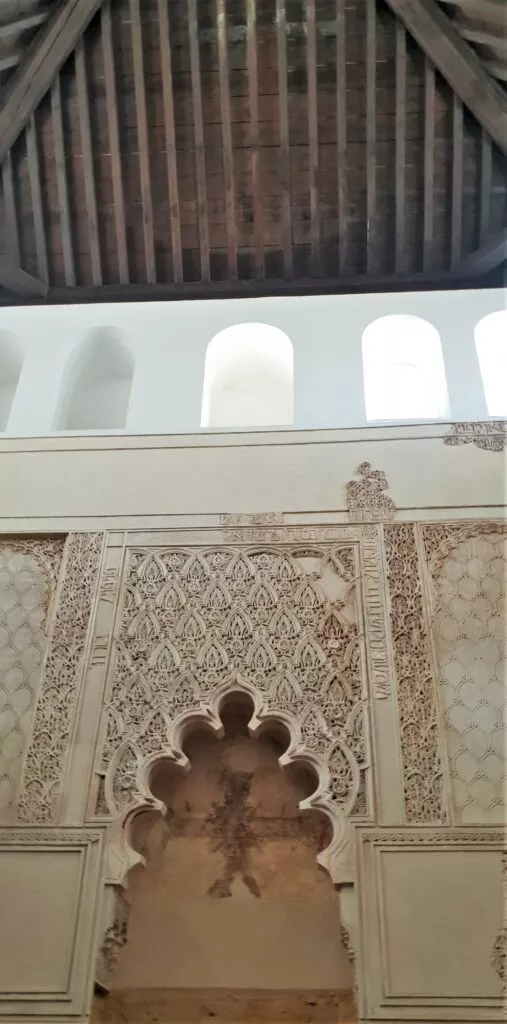
The Shoemakers’ Guild is probably the most important guild of its time. Indeed, Cordoba is renowned for its leather work.
Calle de los Judios and Calleja de las Flores
Calle de los Judios is one of the oldest streets in Cordoba. It is also one of the most tortuous, faithful to the streets of the medieval period.
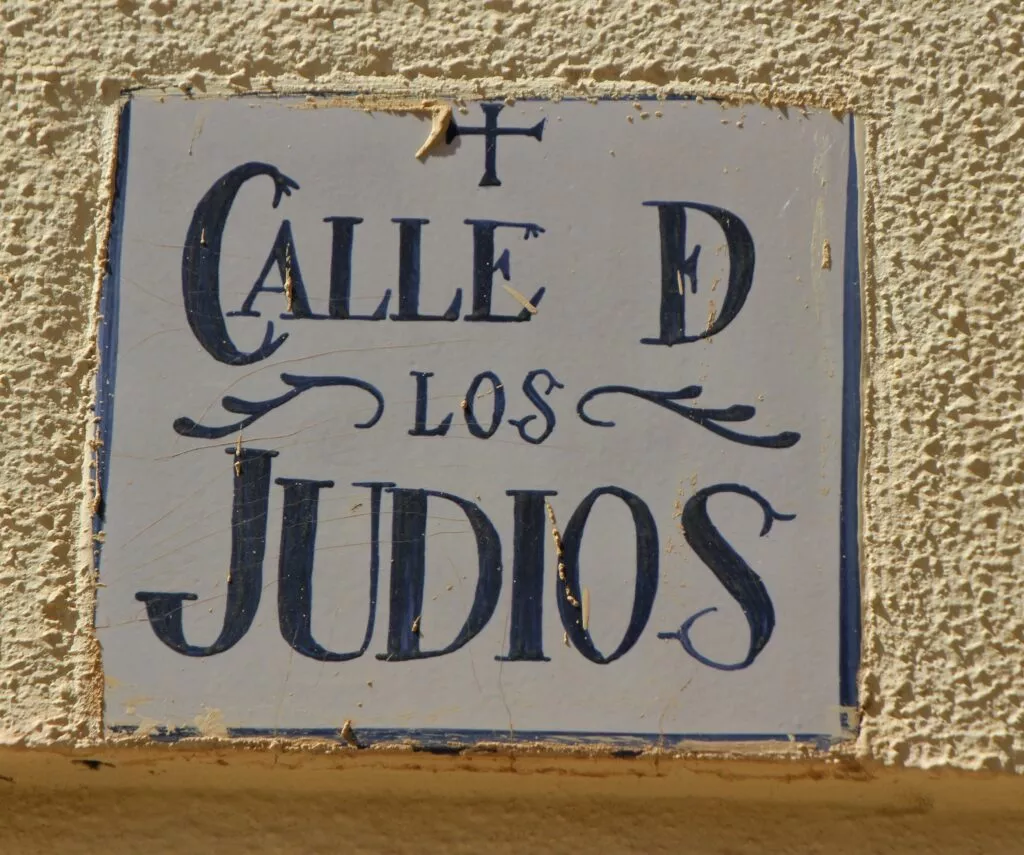
It is located in the heart of the old Jewish quarter, where you can see the synagogue and the Casa de Sefarad, a museum of the history and memory of Sephardic Jews.
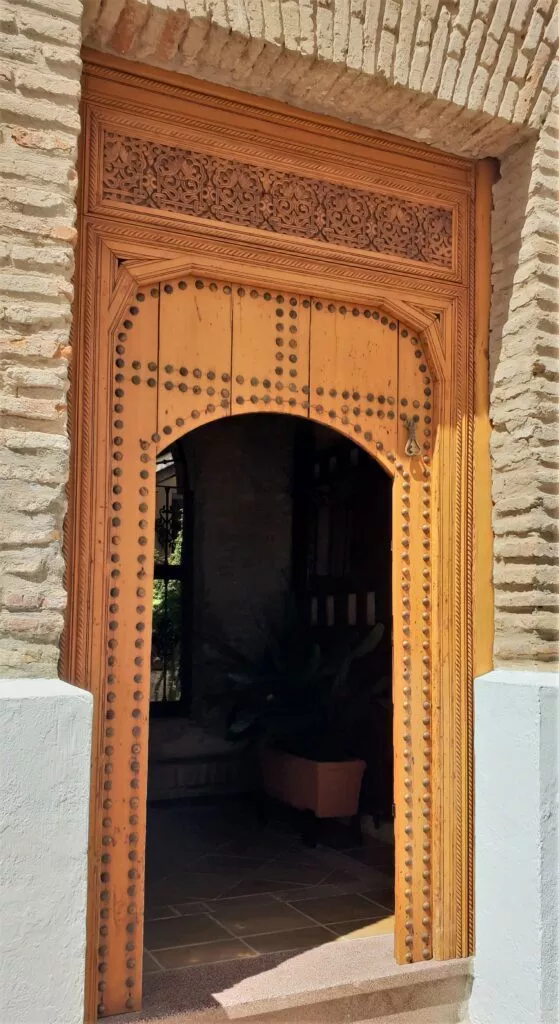
You will also find several handicrafts in this street.
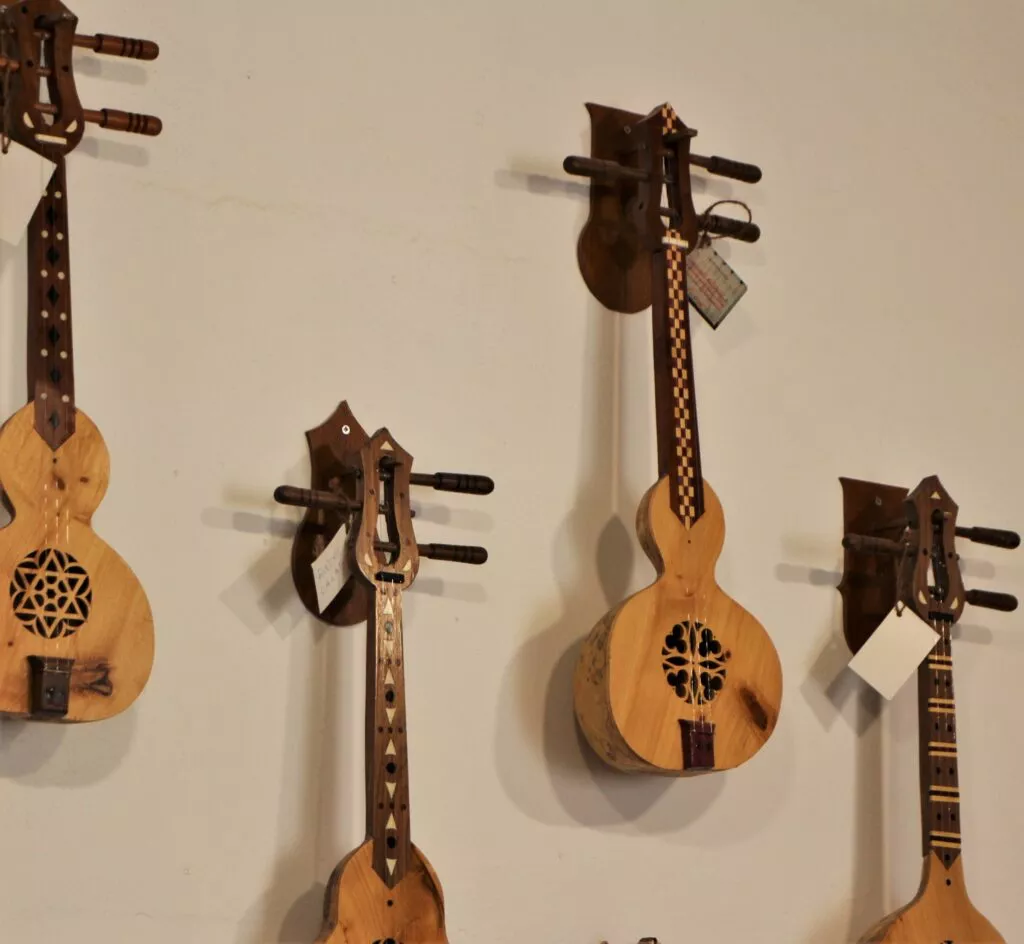
The Calleja de las Flores is the best known street in Cordoba, and probably one of the most decorated with flower pots hanging on the walls.
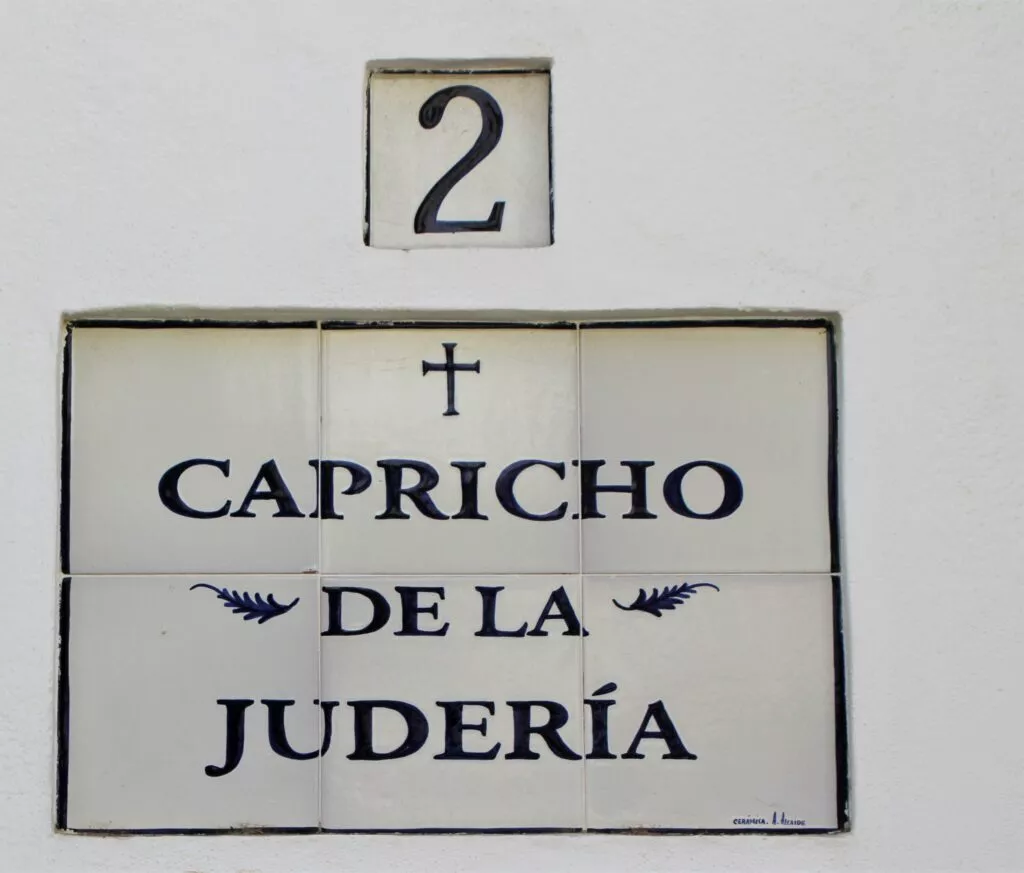
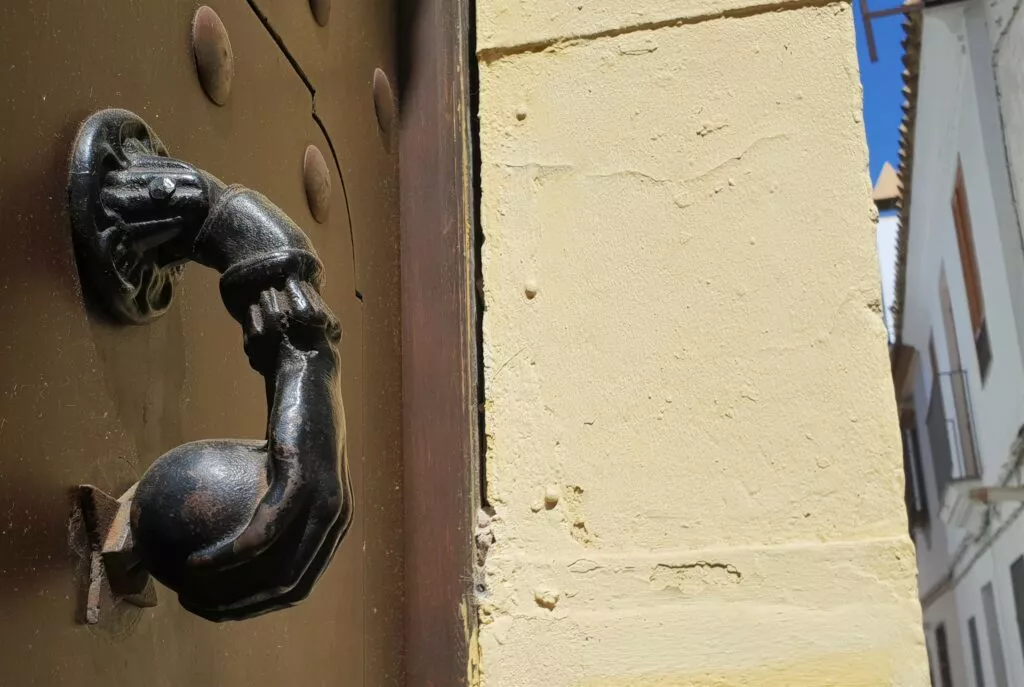
If there were only 2 streets to see, here they are!
The House of the Sephardim
The House of the Sephardim is a cultural centre.
It has a permanent exhibition. Its cultural activities aim to maintain the memory of the Spanish Jewish identity.
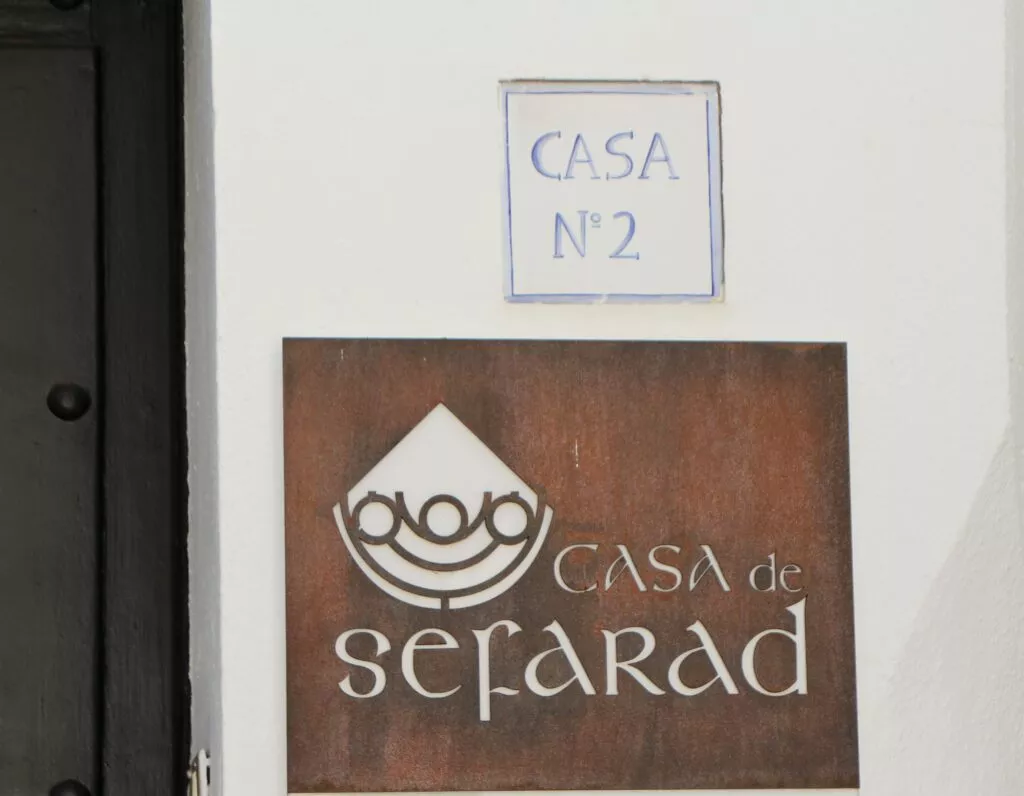
The exhibition is presented in 5 rooms:
- The Jewish quarter of Cordoba
- Festive cycles
- Domestic life,
- Women of Al-Andalus
- Sefardi music
The Bullfighting Museum
This museum is located in a very pretty square: Maimonides Square. It is located in a 16th century mansion, the Casa de las Bulas de la Santa Cruzada, with the former hospital of Cardinal Salazar next door.
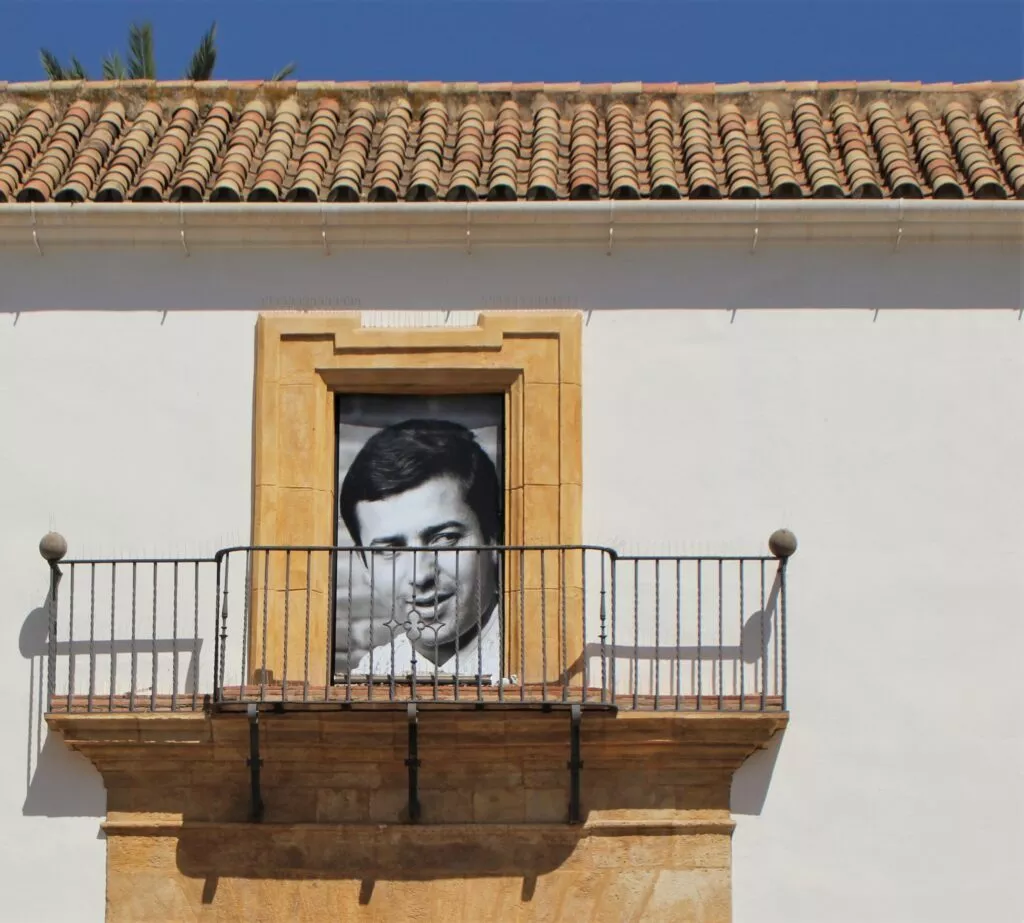
This museum evokes the 5 greatest bullfighters in history:
- Lagartijo,
- Guerrita,
- Machaquito,
- Manolete
- Manuel Benitez, El Cordobés.
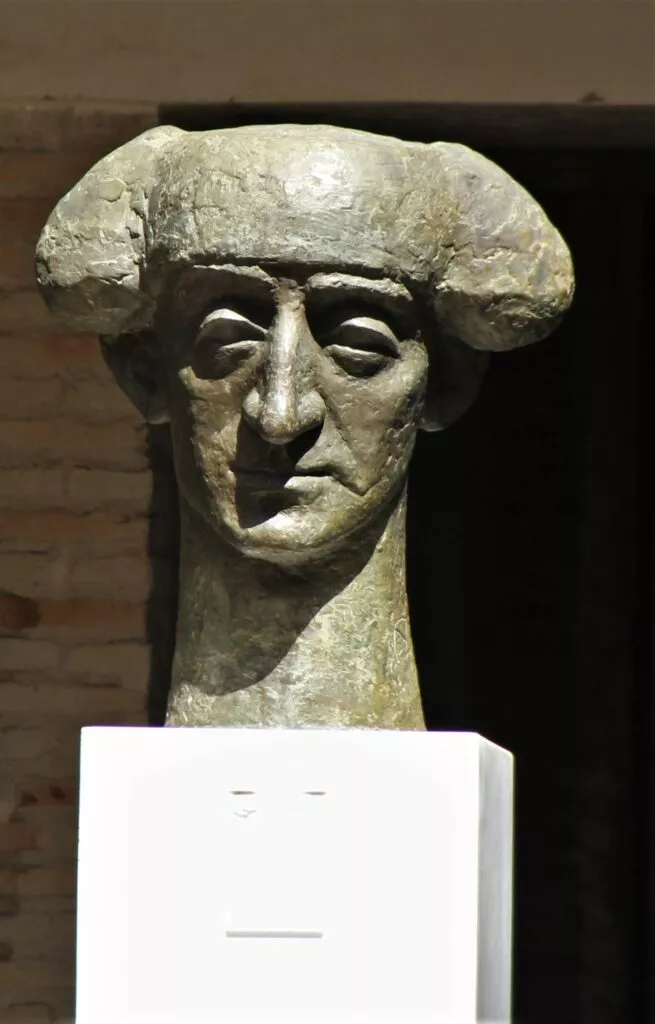
In the Plaza de Maimonides, there is also a beautiful Mudejar-style house:
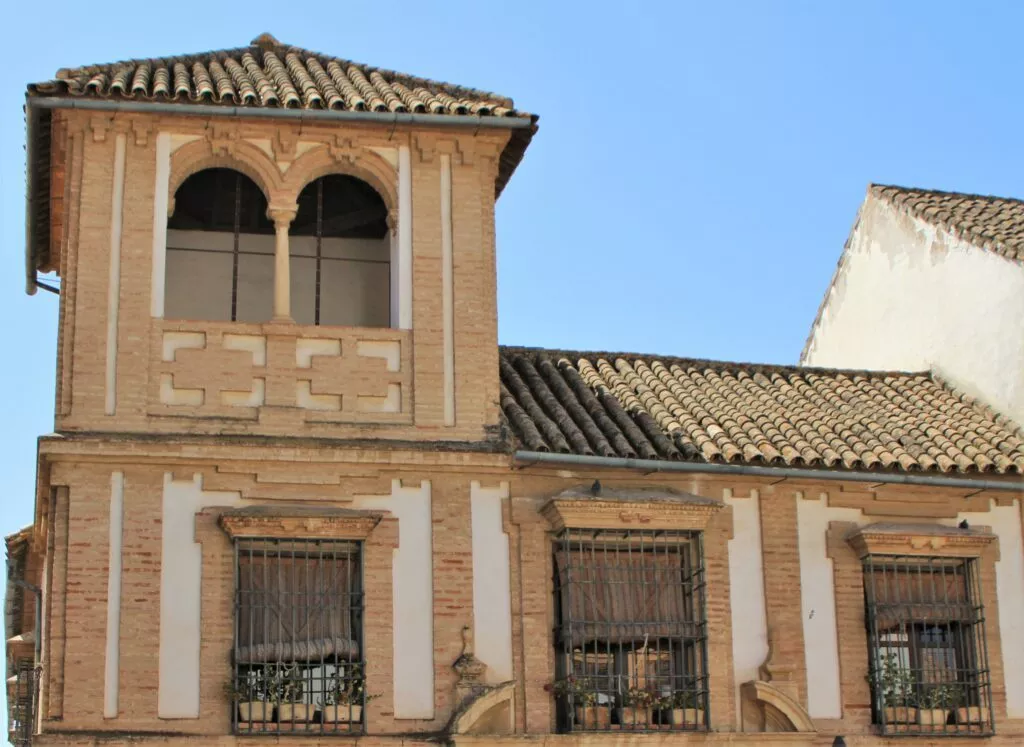
The Rafael Boti Foundation
This museum can be found in Judah Levi Square. It has a permanent collection of contemporary art as well as a dozen temporary exhibitions each year.
The Alchemy Museum
The museum is located in a very old house dating from the 13th century, older than the synagogue, in the centre of the Jewish quarter.
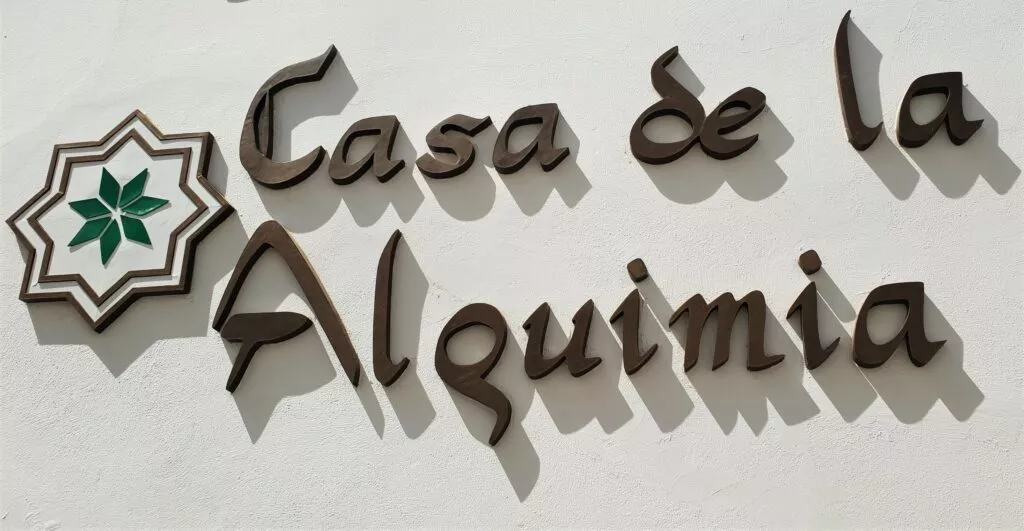
In this museum you will find everything that revolves around this thousand-year-old art, alchemical stones, mortars, medicines and elixirs.
I admit that I don’t know much about the world of alchemy, but I was seduced by the Arabic word “alchemy” and by the name of the museum “Al-Iksir”.
The chapel of San Bartolomé
This chapel is 3 or 4 minutes away from the synagogue, you enter it from Averroes street. It is located exactly inside the Faculty of Philosophy and Letters of Cordoba (which is the former hospital of Cardinal Salazar).
It was built in the 14th century and is a wonderful example of the Mudejar style. You only have to spend 5 minutes there but its decoration is exquisite with its numerous azulejos.
Plaza de Tiberíades
The name of the square of Tiberiades (current capital of Galilee in Israel) was probably chosen for the statue it hosts!
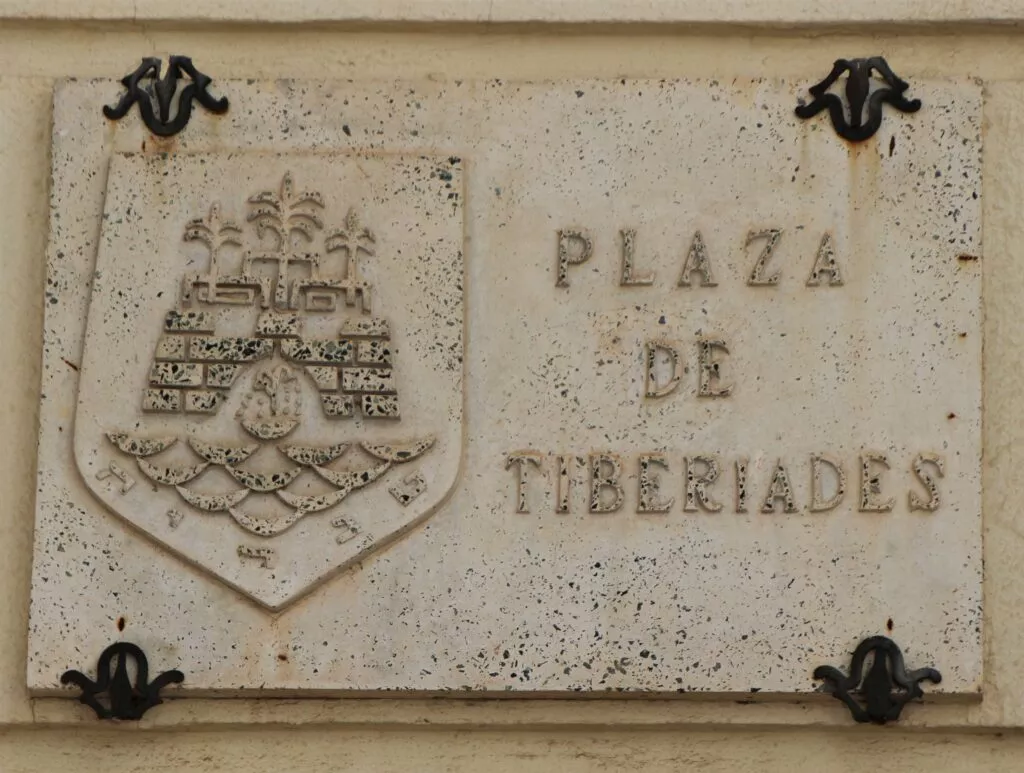
This square is located not far from the synagogue and is home to the famous statue of Maimonides, one of the greatest Jewish philosophers.
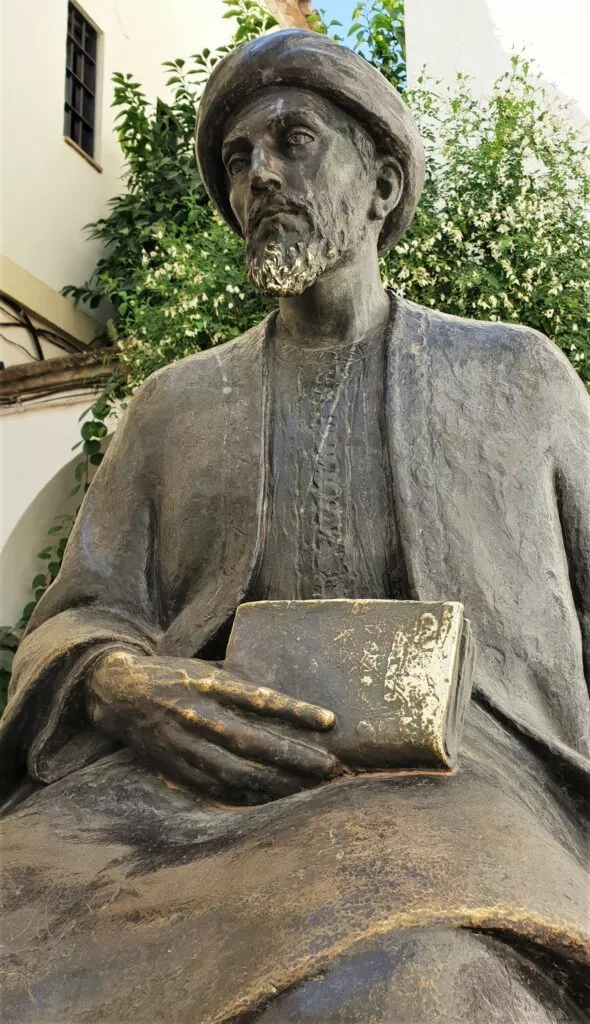
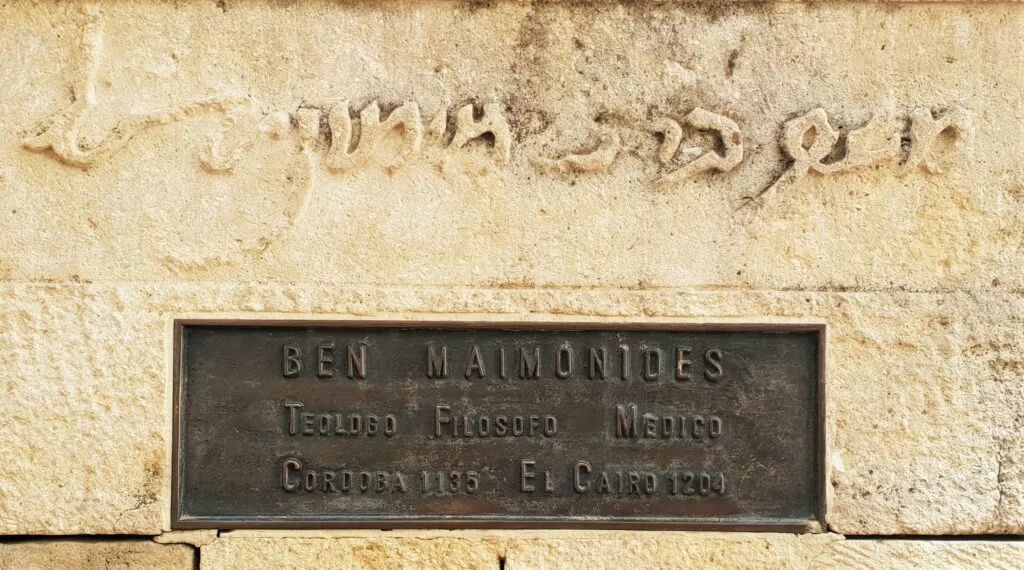
Tiberiade is the city where he is buried today and it is one of the four Jewish holy cities in Israel (with Jerusalem, Hebron and Safed).
A few words about Maimonides:
He is one of the three greatest philosophers born in Cordoba along with Seneca and Averroes. They are also major philosophers of Roman, Islamic and Jewish civilisation.
The name Maimonides can be found in different forms:
- Moshe ben Maïmon
- RaMBam, acronyme de rabbi Moïse ben Maïmon
- Moïse Maïmonide (in French)
- Abou Imran Moussa ibn Maïmoun ibn Abdallah al-Kourtoubi al-Yahoudi (translated from Arabic)
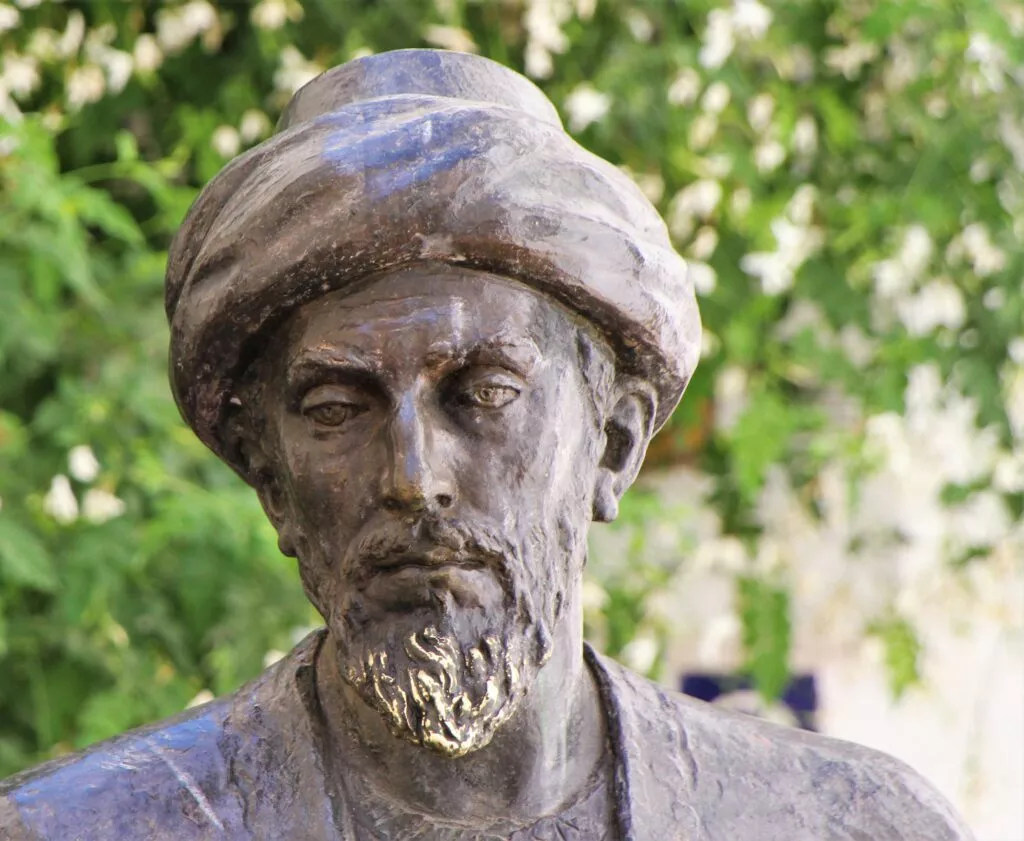
Moshe ben Maimon was born in Cordoba in 1138, which was then under the rule of the Almoravids, a Berber dynasty. His family took the name of Ibn Abdallah, and had sat on the rabbinical court of Cordoba for seven generations.
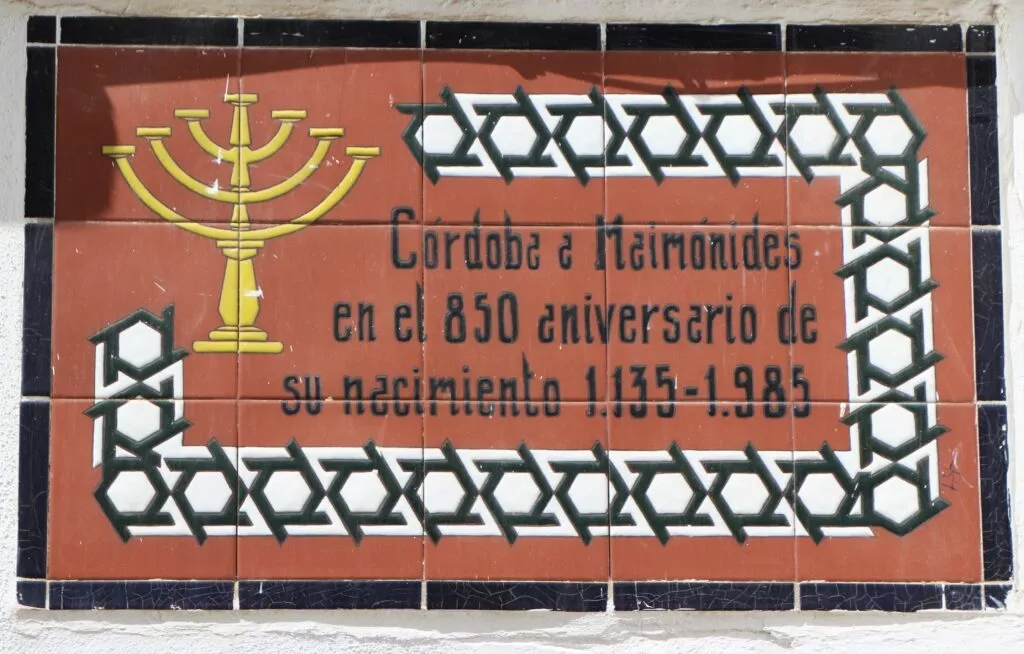
Maimonides, undoubtedly the greatest philosopher of medieval Judaism, was also a doctor and a lawyer. The Mishneh Torah (the second Thorah), remains his greatest legacy. It is the most important compilation of written texts of Jewish law to date.
In the following link you will find the possibility to book online Tour of the Jewish Quarter and the Mezquita Cathedral.
If you choose to visit Córdoba without a guide, here is a great idea to relax in a beautiful place after your visit to the city (…and the heat): book the hammam. It is located not far from the mosque-cathedral.
Finding a typical Sephardic restaurant in the neighbourhood
Here is a restaurant, right next to the Plaza de Maimónides.
Its menu offers Sephardic specialities such as (in Spanish on the menu):
- Cuscús,
- Baba Ganoush ,
- Falafels,
- Hummus,
- Tarta de almendra sefardí
Some dishes are served cashers, such as “Kemia de zanahorias” or “Shushuka”.
This is the Casa Mazal restaurant. You can find the exact address and contact details in the following link: see the Casa Mazal restaurant.
What to do in Cordoba?
If you are in the western part of the Costa del Sol and would like to visit Cordoba, you can use the following link to book a tour from Málaga, Torremolinos, Mijas or Benalmadena.
Below you will find a number of ideas for activities and visits, classified by theme. You can book them online today.
Bonus: all activities can be cancelled up to 24 hours before the scheduled date:
Find accommodation in Cordoba
See the offers for a stay of one or more nights in the historic centre of Cordoba
Here is the address of a very nice hotel located in the Juderia, not far from the Alcazar of the Catholic Kings. It is a beautiful hotel and I loved its patio:
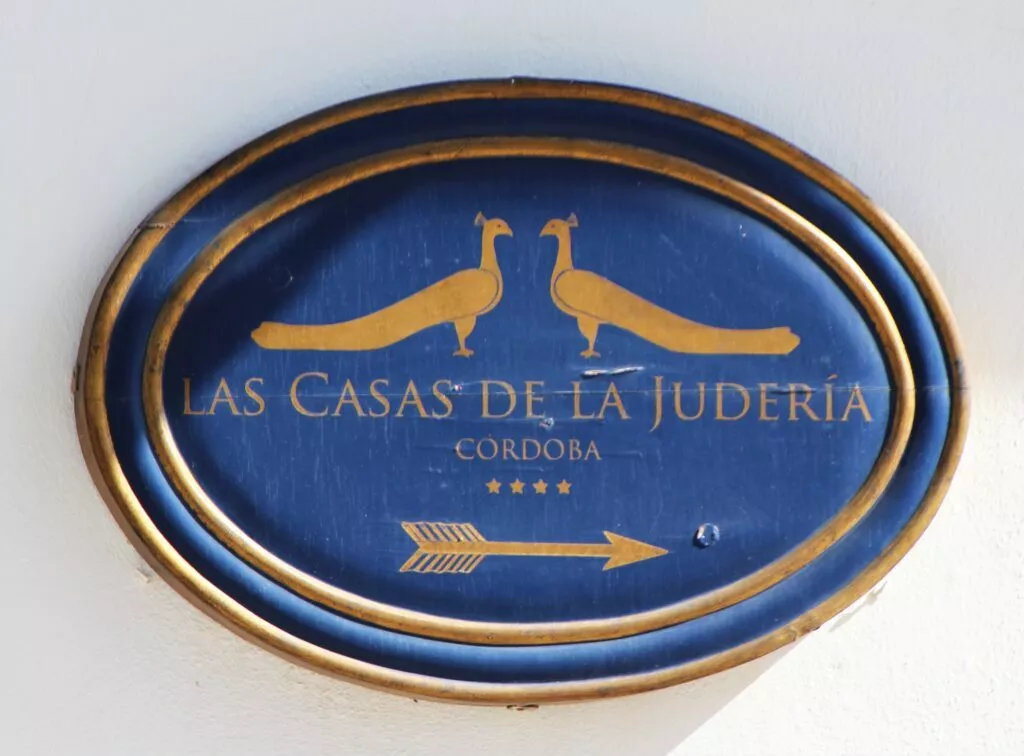
This is the Las Casas de la Juderia hotel, you will find all the information, pictures, and the possibility to book online : here
Some useful links for your holidays in Andalucia
Easy and economical bookings
What to see around Cordoba and further afield?
Next to Córdoba, a visit to Lucena, known as the Sephardic Pearl during the time of Al-Andalus, is not to be missed.
If you enjoyed Cordoba’s judería quarter :
I invite you to discover the old Jewish quarter of Seville. A wonderful walk awaits you in this beautiful neighbourhood:
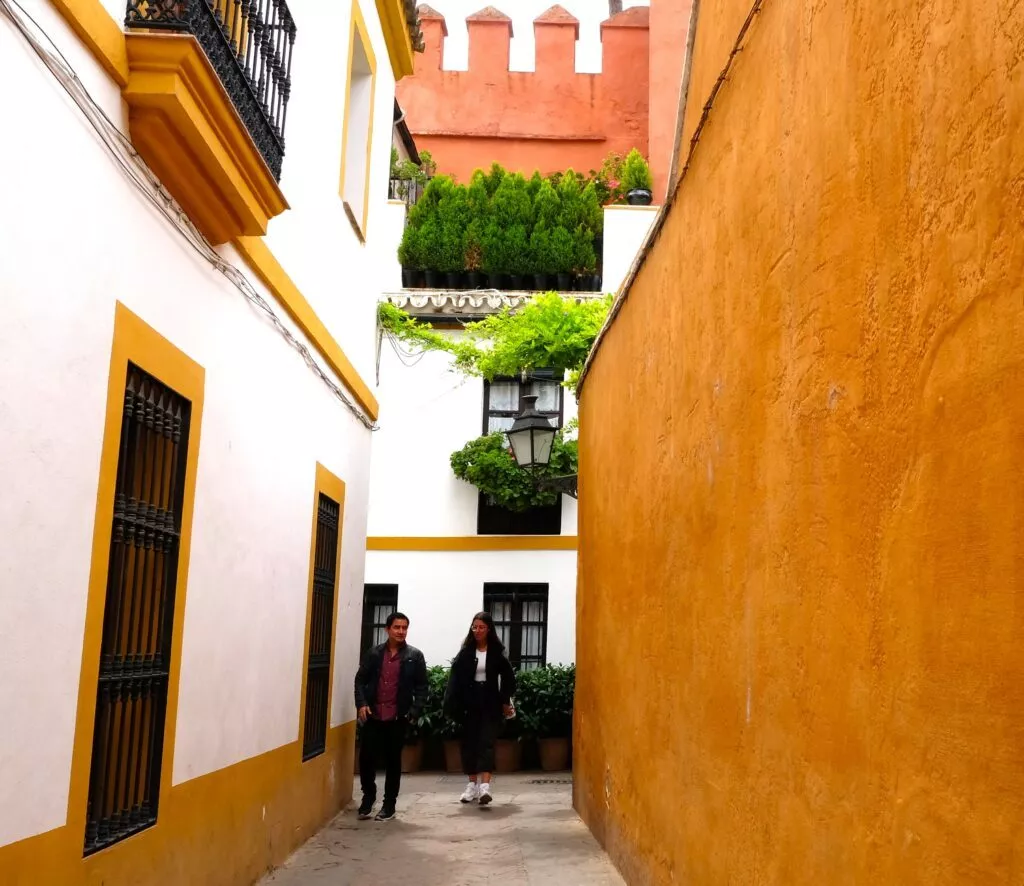
In the event that you are on holiday on the “Costa del Sol Oriental”, the eastern part of Malaga :
From your place of stay between Nerja and Torre del Mar, a guide will organise a day trip to discover the Caliphal city (the mezquita-cathedral, the patios, the Jewish quarter and the alcazar of the Catholic kings). This tour is done in semi-private groups (2 to 8 people maximum).
To access the details of the Tour, the price and to book online, simply click here.
If you are in Andalucia as part of a tour with several major cities to visit, here are some links that may be of interest:
Seville
Seville, the capital of Andalucia, is a city full of treasures to discover and monuments to visit.
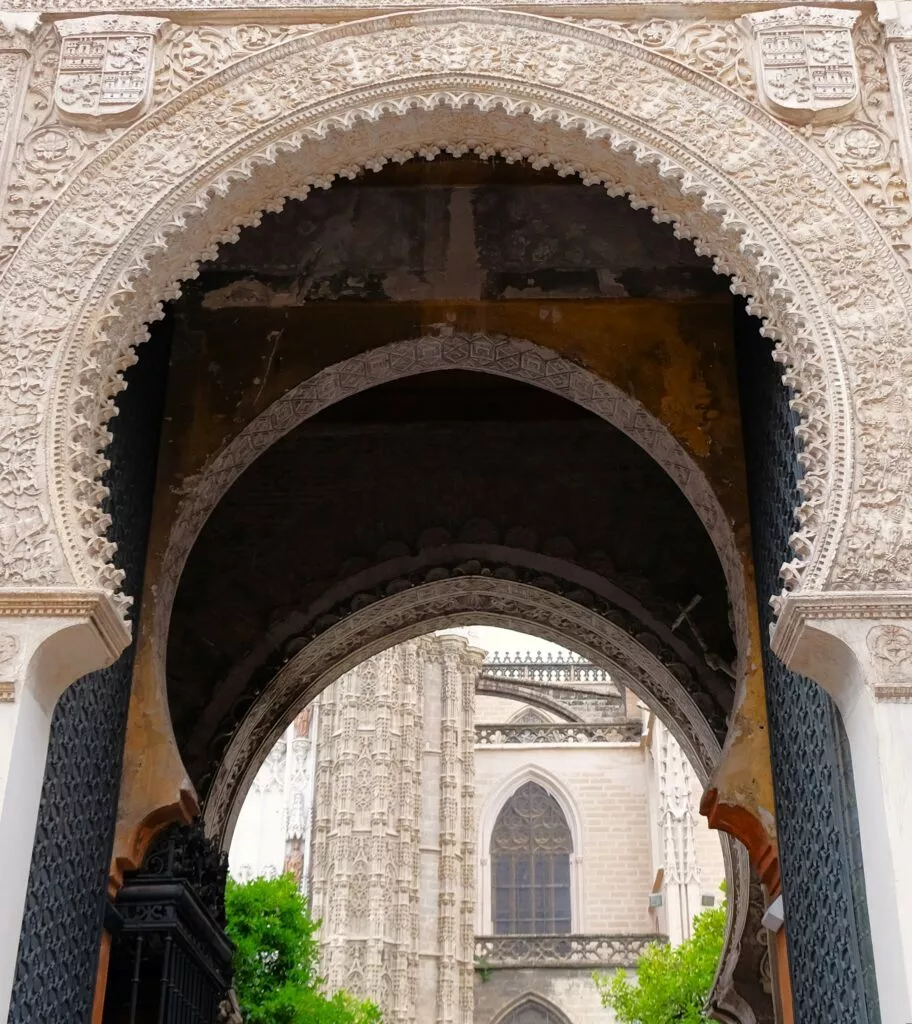
Here you will find everything you can see in Seville in 3 days. And for those who will stay longer you will also find information on secret Seville and the Santa Cruz and Triana districts.
Cadiz
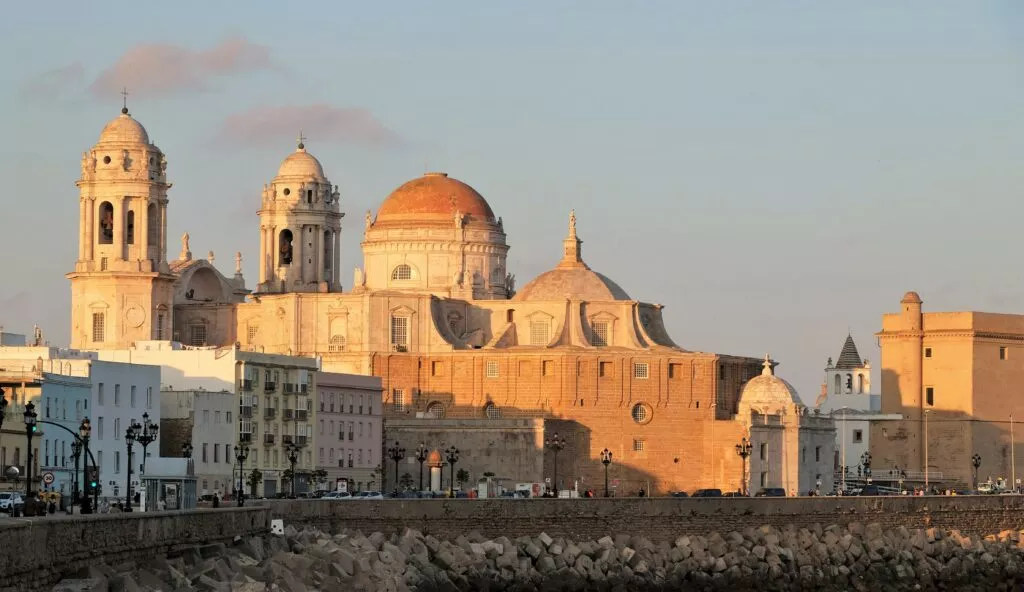
Visit Cadiz, a city with an incredible past and great beauty, on the Costa del la Luz.
Malaga
When you reach the Costa del Sol you will find in this link all must-sees in Malaga :
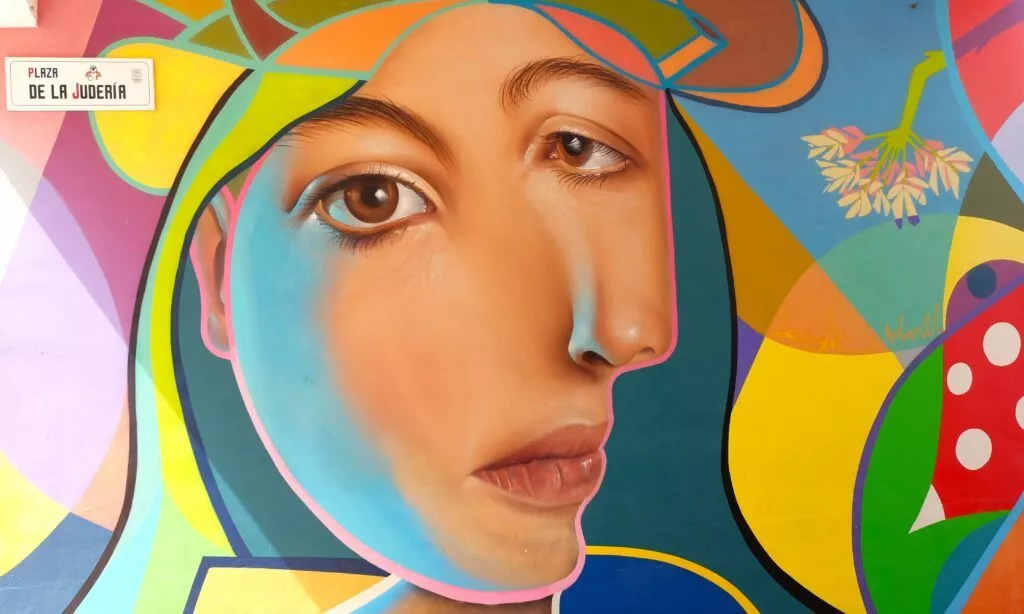
Granada
Discover what to see in Granada, and visit the Albaicin and Sacromonte districts:
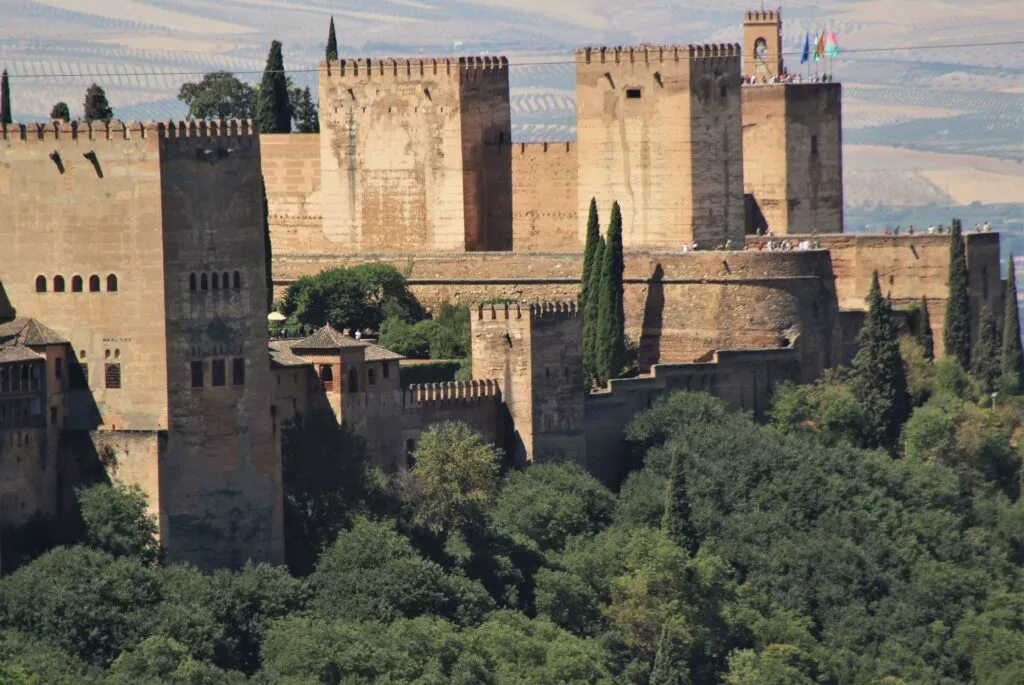
Discover other beautiful sites in Andalusia in the pages of the blog on Andalusia.
Here is the link to receive our newsletter from the andaluciamia.com blog
The latest articles on Andalucia
-
Interactive map of Andalucia with best places to see
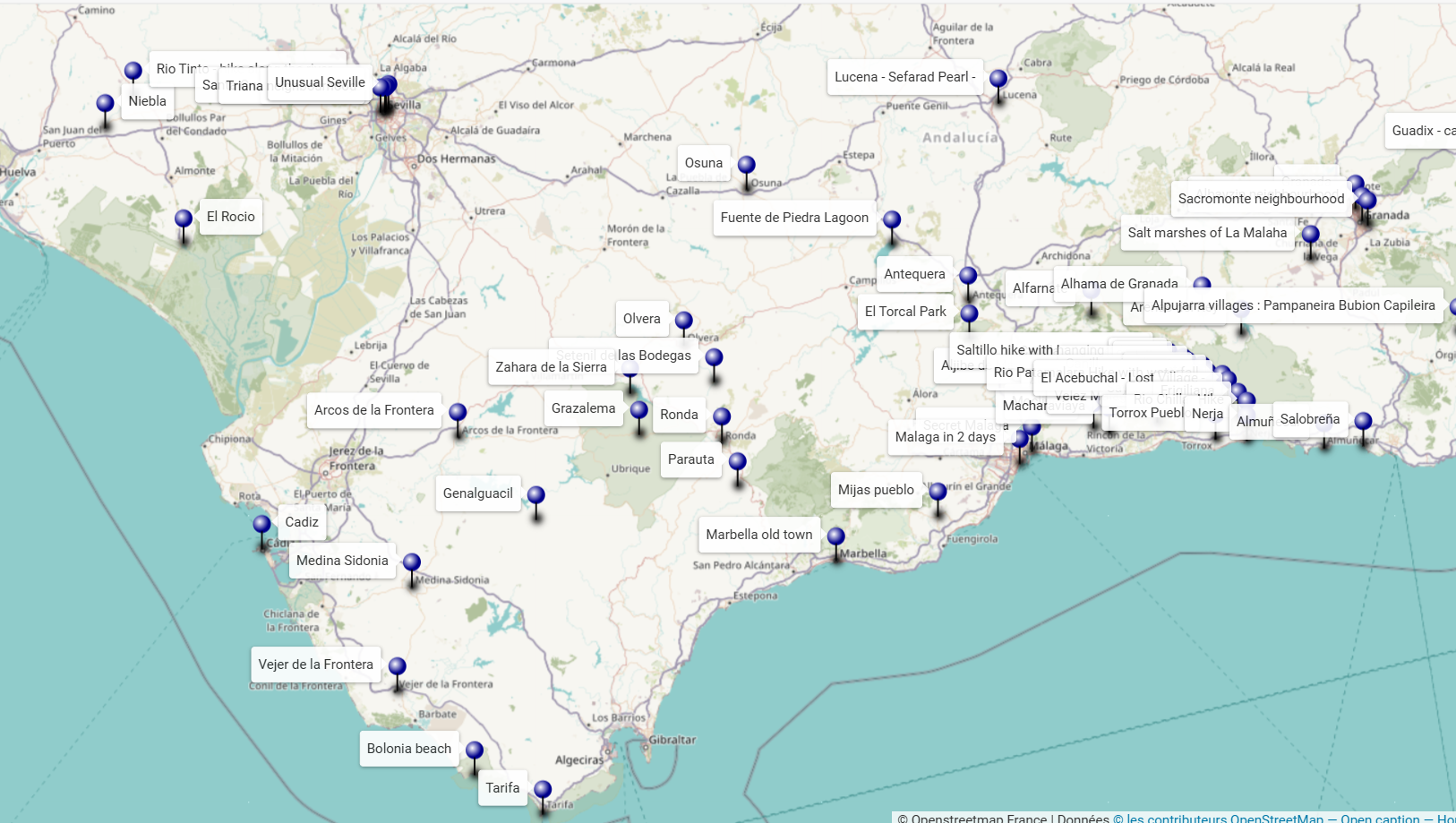
An interactive map of Andalucia to discover the sites to see around your holiday destination or to prepare a tour or road-trip.
-
Rum in Andalucia and…sugar cane
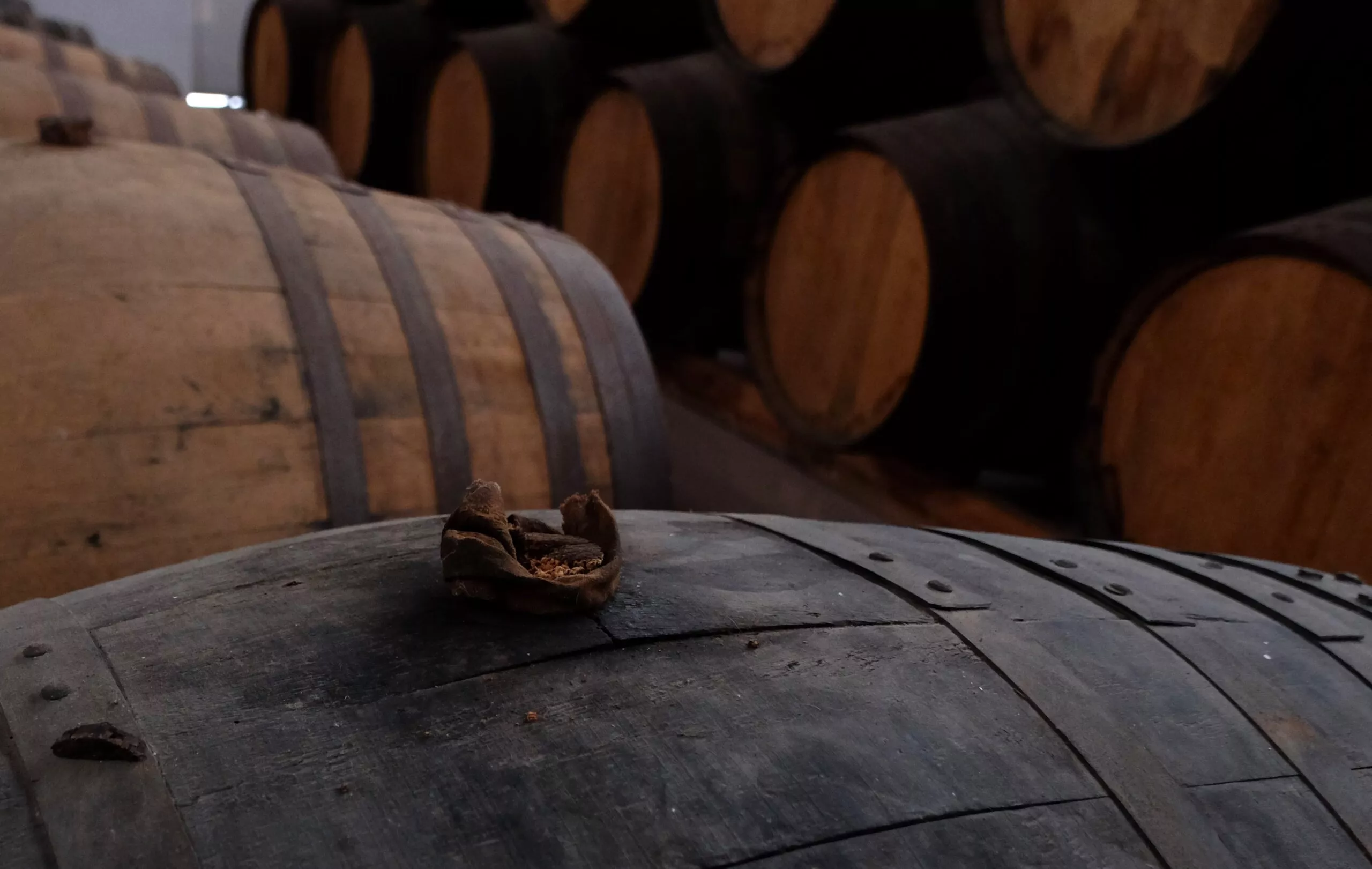
Let’s discover a rum producer and sugar cane grower in Andalucia. He’s probably the only one to produce 100% local rum!
-
Teba’s Douglas Days to celebrate the Andalusian Braveheart
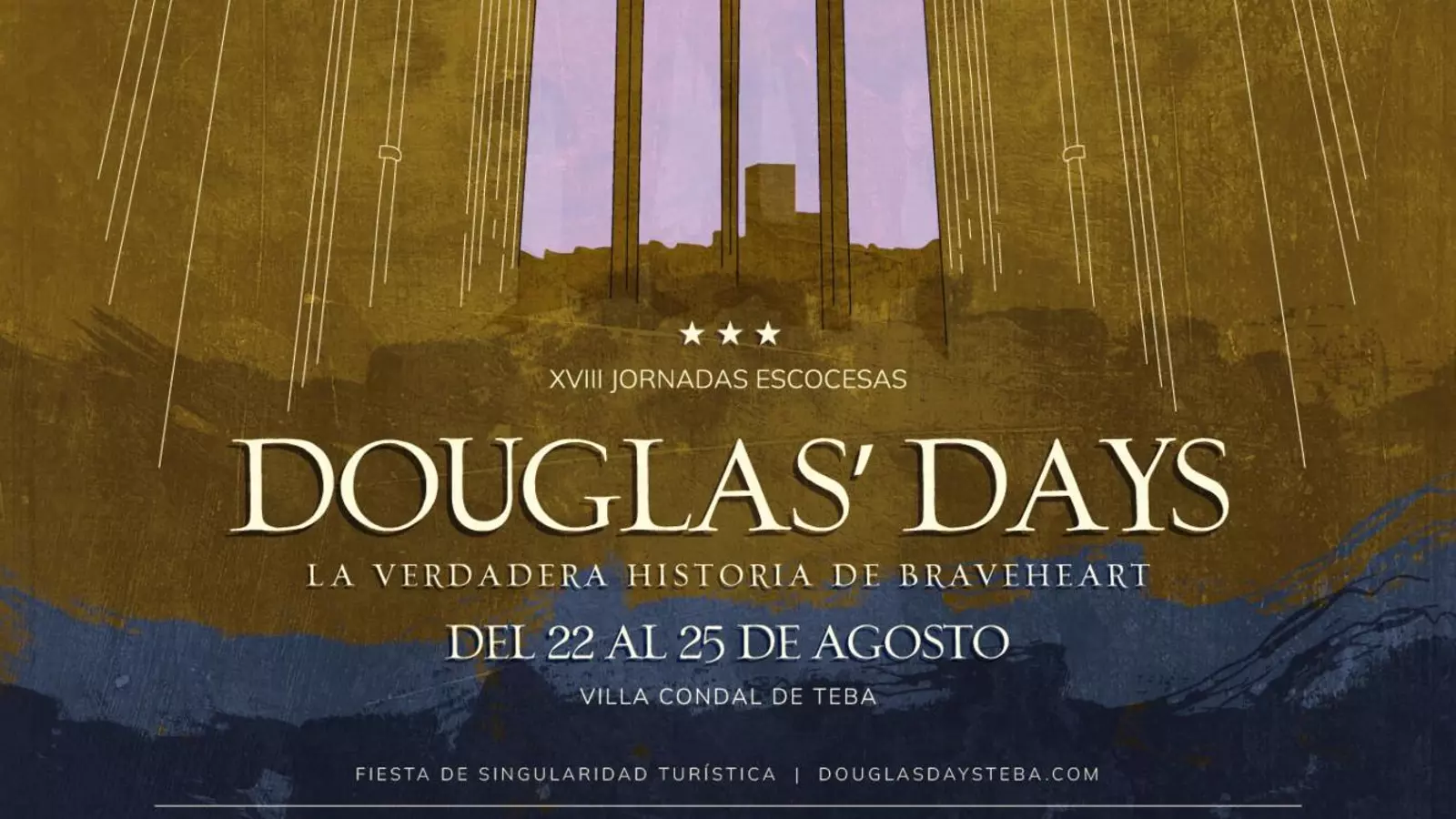
An incredible and unusual festival in Andalucia: the Scottish Days in Teba, near Malaga. It takes place in August.
-
Authentic Andalucia: Guájar Fondón, Guájar Faragüit and Guájar alto
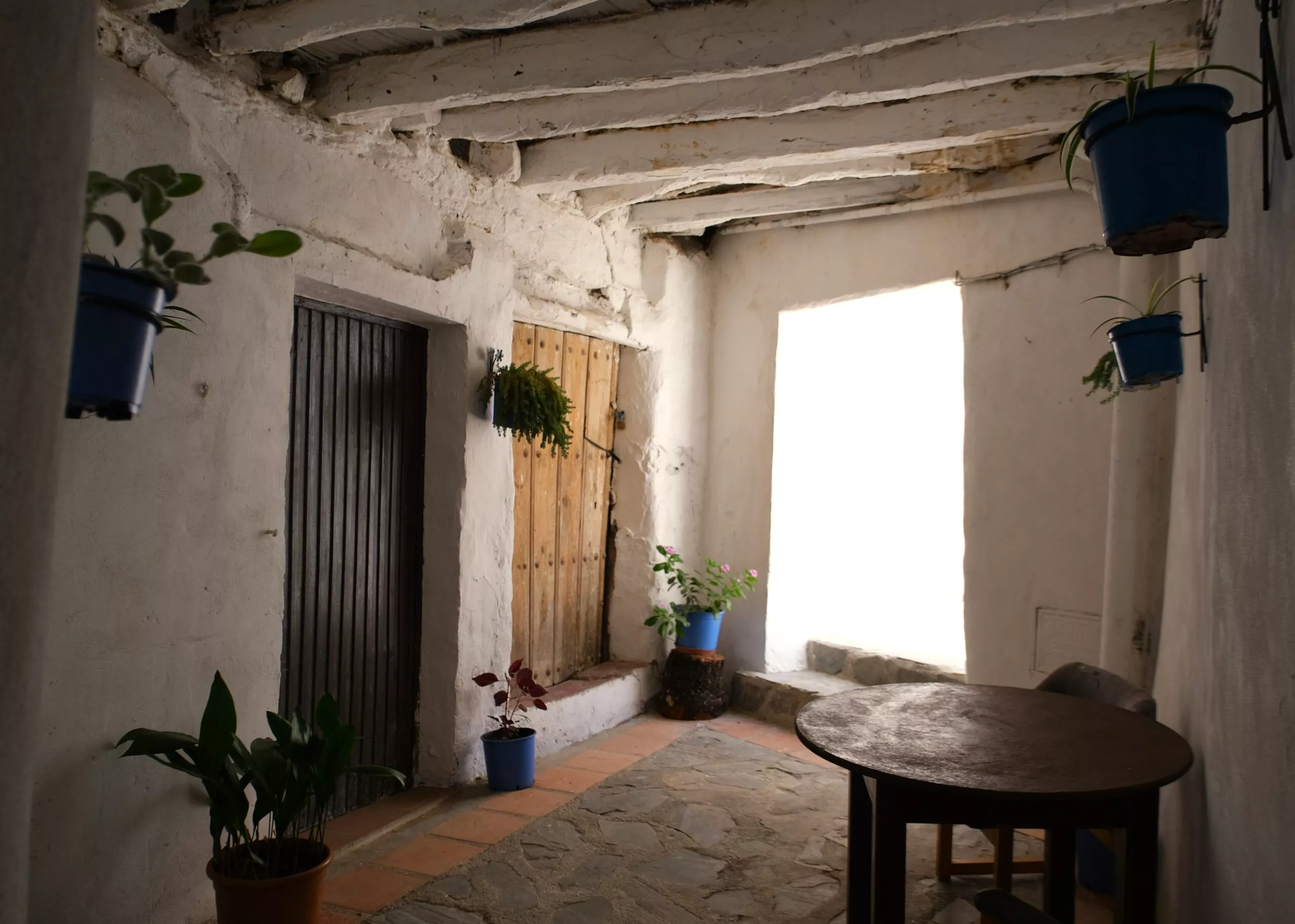
For lovers of authentic Andalucia, here’s a getaway you’ll love. Discover the 3 villages of los Guajares in Granada Province.
